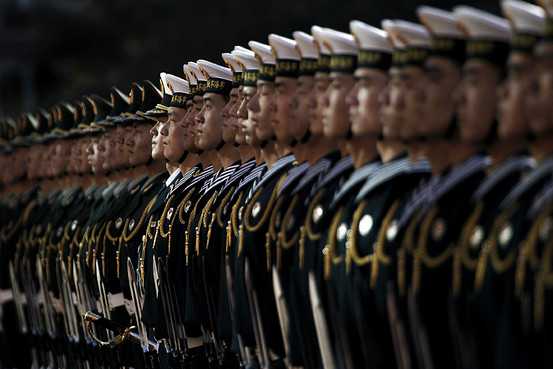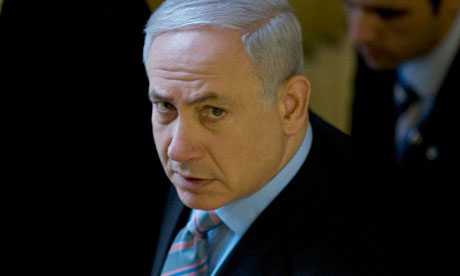The American government secretly backed leading figures behind the Egyptian uprising who have been planning “regime change” for the past three years, The Daily Telegraph has learned.
By Tim Ross, Matthew Moore and Steven Swinford
The American Embassy in Cairo helped a young dissident attend a US-sponsored summit for activists in New York, while working to keep his identity secret from Egyptian state police.
On his return to Cairo in December 2008, the activist told US diplomats that an alliance of opposition groups had drawn up a plan to overthrow President Hosni Mubarak and install a democratic government in 2011.
The secret document in full
He has already been arrested by Egyptian security in connection with the demonstrations and his identity is being protected by The Daily Telegraph.
The crisis in Egypt follows the toppling of Tunisian president Zine al-Abedine Ben Ali, who fled the country after widespread protests forced him from office.
The disclosures, contained in previously secret US diplomatic dispatches released by the WikiLeaks website, show American officials pressed the Egyptian government to release other dissidents who had been detained by the police.
Mr Mubarak, facing the biggest challenge to his authority in his 31 years in power, ordered the army on to the streets of Cairo yesterday as rioting erupted across Egypt.
Tens of thousands of anti-government protesters took to the streets in open defiance of a curfew. An explosion rocked the centre of Cairo as thousands defied orders to return to their homes. As the violence escalated, flames could be seen near the headquarters of the governing National Democratic Party.
Police fired rubber bullets and used tear gas and water cannon in an attempt to disperse the crowds.
At least five people were killed in Cairo alone yesterday and 870 injured, several with bullet wounds. Mohamed ElBaradei, the pro-reform leader and Nobel Peace Prize winner, was placed under house arrest after returning to Egypt to join the dissidents. Riots also took place in Suez, Alexandria and other major cities across the country.
William Hague, the Foreign Secretary, urged the Egyptian government to heed the “legitimate demands of protesters”. Hillary Clinton, the US Secretary of State, said she was “deeply concerned about the use of force” to quell the protests.
In an interview for the American news channel CNN, to be broadcast tomorrow, David Cameron said: “I think what we need is reform in Egypt. I mean, we support reform and progress in the greater strengthening of the democracy and civil rights and the rule of law.”
The US government has previously been a supporter of Mr Mubarak’s regime. But the leaked documents show the extent to which America was offering support to pro-democracy activists in Egypt while publicly praising Mr Mubarak as an important ally in the Middle East.
In a secret diplomatic dispatch, sent on December 30 2008, Margaret Scobey, the US Ambassador to Cairo, recorded that opposition groups had allegedly drawn up secret plans for “regime change” to take place before elections, scheduled for September this year.
The memo, which Ambassador Scobey sent to the US Secretary of State in Washington DC, was marked “confidential” and headed: “April 6 activist on his US visit and regime change in Egypt.”
It said the activist claimed “several opposition forces” had “agreed to support an unwritten plan for a transition to a parliamentary democracy, involving a weakened presidency and an empowered prime minister and parliament, before the scheduled 2011 presidential elections”. The embassy’s source said the plan was “so sensitive it cannot be written down”.
Ambassador Scobey questioned whether such an “unrealistic” plot could work, or ever even existed. However, the documents showed that the activist had been approached by US diplomats and received extensive support for his pro-democracy campaign from officials in Washington. The embassy helped the campaigner attend a “summit” for youth activists in New York, which was organised by the US State Department.
Cairo embassy officials warned Washington that the activist’s identity must be kept secret because he could face “retribution” when he returned to Egypt. He had already allegedly been tortured for three days by Egyptian state security after he was arrested for taking part in a protest some years earlier.
The protests in Egypt are being driven by the April 6 youth movement, a group on Facebook that has attracted mainly young and educated members opposed to Mr Mubarak. The group has about 70,000 members and uses social networking sites to orchestrate protests and report on their activities.
The documents released by WikiLeaks reveal US Embassy officials were in regular contact with the activist throughout 2008 and 2009, considering him one of their most reliable sources for information about human rights abuses.
www.telegraph.co.uk, 28 Jan 2011
Egypt protests: secret US document discloses support for protesters
Here is the secret document sent from the US Embassy in Cairo to Washington disclosing the extent of American support for the protesters behind the Egypt uprising.
S E C R E T SECTION 01 OF 02 CAIRO 002572 SIPDIS FOR NEA/ELA, R, S/P AND H NSC FOR PASCUAL AND KUTCHA-HELBLING E.O. 12958: DECL: 12/30/2028 TAGS: PGOV, PHUM, KDEM, EG SUBJECT: APRIL 6 ACTIVIST ON HIS U.S. VISIT AND REGIME CHANGE IN EGYPT REF: A. CAIRO 2462 B. CAIRO 2454 C. CAIRO 2431 Classified By: ECPO A/Mincouns Catherine Hill-Herndon for reason 1.4 (d ).
1. (C) Summary and comment: On December 23, April 6 activist xxxxxxxxxxxx expressed satisfaction with his participation in the December 3-5 \”Alliance of Youth Movements Summit,\” and with his subsequent meetings with USG officials, on Capitol Hill, and with think tanks. He described how State Security (SSIS) detained him at the Cairo airport upon his return and confiscated his notes for his summit presentation calling for democratic change in Egypt, and his schedule for his Congressional meetings. xxxxxxxxxxxx contended that the GOE will never undertake significant reform, and therefore, Egyptians need to replace the current regime with a parliamentary democracy. He alleged that several opposition parties and movements have accepted an unwritten plan for democratic transition by 2011; we are doubtful of this claim.
xxxxxxxxxxxx said that although SSIS recently released two April 6 activists, it also arrested three additional group members. We have pressed the MFA for the release of these April 6 activists. April 6’s stated goal of replacing the current regime with a parliamentary democracy prior to the 2011 presidential elections is highly unrealistic, and is not supported by the mainstream opposition. End summary and comment.
—————————- Satisfaction with the Summit —————————-
2. (C) xxxxxxxxxxxx expressed satisfaction with the December 3-5 \”Alliance of Youth Movements Summit\” in New York, noting that he was able to meet activists from other countries and outline his movement’s goals for democratic change in Egypt. He told us that the other activists at the summit were very supportive, and that some even offered to hold public demonstrations in support of Egyptian democracy in their countries, with xxxxxxxxxxxx as an invited guest. xxxxxxxxxxxx said he discussed with the other activists how April 6 members could more effectively evade harassment and surveillance from SSIS with technical upgrades, such as consistently alternating computer \”simcards.\” However, xxxxxxxxxxxx lamented to us that because most April 6 members do not own computers, this tactic would be impossible to implement. xxxxxxxxxxxx was appreciative of the successful efforts by the Department and the summit organizers to protect his identity at the summit, and told us that his name was never mentioned publicly.
——————- A Cold Welcome Home ——————-
3. (S) xxxxxxxxxxxx told us that SSIS detained and searched him at the Cairo Airport on December 18 upon his return from the U.S. According to xxxxxxxxxxxx, SSIS found and confiscated two documents in his luggage: notes for his presentation at the summit that described April 6’s demands for democratic transition in Egypt, and a schedule of his Capitol Hill meetings. xxxxxxxxxxxx described how the SSIS officer told him that State Security is compiling a file on him, and that the officer’s superiors instructed him to file a report on xxxxxxxxxxxx most recent activities.
——————————————— ———-
Washington Meetings and April 6 Ideas for Regime Change
——————————————— ———-
4. (C) xxxxxxxxxxxx described his Washington appointments as positive, saying that on the Hill he met with xxxxxxxxxxxx, a variety of House staff members, including from the offices of xxxxxxxxxxxx and xxxxxxxxxxxx), and with two Senate staffers. xxxxxxxxxxxx also noted that he met with several think tank members. xxxxxxxxxxxx said that xxxxxxxxxxxx’s office invited him to speak at a late January Congressional hearing on House Resolution 1303 regarding religious and political freedom in Egypt. xxxxxxxxxxxx told us he is interested in attending, but conceded he is unsure whether he will have the funds to make the trip. He indicated to us that he has not been focusing on his work as a \”fixer\” for journalists, due to his preoccupation with his U.S. trip. 5. (C) xxxxxxxxxxxx described how he tried to convince his Washington interlocutors that the USG should pressure the GOE to implement significant reforms by threatening to reveal CAIRO 00002572 002 OF 002 information about GOE officials’ alleged \”illegal\” off-shore bank accounts. He hoped that the U.S. and the international community would freeze these bank accounts, like the accounts of Zimbabwean President Mugabe’s confidantes. xxxxxxxxxxxx said he wants to convince the USG that Mubarak is worse than Mugabe and that the GOE will never accept democratic reform. xxxxxxxxxxxx asserted that Mubarak derives his legitimacy from U.S. support, and therefore charged the U.S. with \”being responsible\” for Mubarak’s \”crimes.\”
He accused NGOs working on political and economic reform of living in a \”fantasy world,\” and not recognizing that Mubarak — \”the head of the snake\” — must step aside to enable democracy to take root.
6. (C) xxxxxxxxxxxx claimed that several opposition forces — including the Wafd, Nasserite, Karama and Tagammu parties, and the Muslim Brotherhood, Kifaya, and Revolutionary Socialist movements — have agreed to support an unwritten plan for a transition to a parliamentary democracy, involving a weakened presidency and an empowered prime minister and parliament, before the scheduled 2011 presidential elections (ref C). According to xxxxxxxxxxxx, the opposition is interested in receiving support from the army and the police for a transitional government prior to the 2011 elections.
xxxxxxxxxxxx asserted that this plan is so sensitive it cannot be written down. (Comment: We have no information to corroborate that these parties and movements have agreed to the unrealistic plan xxxxxxxxxxxx has outlined. Per ref C, xxxxxxxxxxxx previously told us that this plan was publicly available on the internet. End comment.)
7. (C) xxxxxxxxxxxx said that the GOE has recently been cracking down on the April 6 movement by arresting its members. xxxxxxxxxxxx noted that although SSIS had released xxxxxxxxxxxx and xxxxxxxxxxxx \”in the past few days,\” it had arrested three other members. (Note: On December 14, we pressed the MFA for the release of xxxxxxxxxxxx and xxxxxxxxxxxx, and on December 28 we asked the MFA for the GOE to release the additional three activists. End note.) xxxxxxxxxxxx conceded that April 6 has no feasible plans for future activities.
The group would like to call for another strike on April 6, 2009, but realizes this would be \”impossible\” due to SSIS interference, xxxxxxxxxxxx said. He lamented that the GOE has driven the group’s leadership underground, and that one of its leaders, xxxxxxxxxxxx, has been in hiding for the past week.
8. (C) Comment: xxxxxxxxxxxx offered no roadmap of concrete steps toward April 6’s highly unrealistic goal of replacing the current regime with a parliamentary democracy prior to the 2011 presidential elections. Most opposition parties and independent NGOs work toward achieving tangible, incremental reform within the current political context, even if they may be pessimistic about their chances of success. xxxxxxxxxxxx wholesale rejection of such an approach places him outside this mainstream of opposition politicians and activists.
SCOBEY02008-12-307386PGOV,PHUM,KDEM,EGAPRIL 6 ACTIVIST ON HIS U.S. VISIT AND REGIME CHANGE IN EGYPT
www.telegraph.co.uk, 28 Jan 2011







